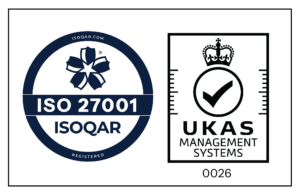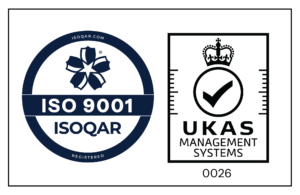Ninety-seven percent of organisations have minimal or no digital document processes in place, according to research from Adobe. If your business falls under this statistic, it might be time for a rethink. Not only does a lack of transparency increase your susceptibility to unclear information governance, but it can also impede your ability to keep information safe.
Taking a digital-first approach to document control should be your top priority in 2023. After all, hybrid working models are here to stay. So ensuring the right access to the right documents, for the right people and at the right time, is business critical.
But before you source a vendor who can quickly evolve your digital document processes, you first need to understand more about why document control is important and why it’s crucial to HR compliance.
Document control: A definition
Document control is the process of managing and organising documents to ensure accuracy, completeness, and accessibility. This includes creating, reviewing, approving, distributing, and storing documents in a controlled and secure environment. It also includes the safe disposal of documents.
Document Control systems play an important role in protecting sensitive documents from exposure to the wrong parties. Additionally, they empower teams to search, find, and retrieve archived and active documents quickly, which improves efficiency and productivity.
Document control and HR compliance: what you need to know
For your HR teams, there are a variety of regulations that your business must meet to ensure the safe handling of data. Here's a breakdown of the most common compliance regulations:
ISO27001: data security and access
ISO27001 provides a framework for managing sensitive information. It also helps businesses safeguard against security threats, including data breaches, hacking, and unauthorised access to sensitive data. This measure includes requirements for risk assessment, security controls, and incident management.
To meet ISO27001, businesses need a formalised system in place. This system must outline the management and protection of sensitive information. They also need a detailed model for secure document control.

Certificate Number 12284
ISO9001: data quality and accuracy
ISO9001 specifies the requirements for a quality management system (QMS). This regulation applies to any business regardless of size or industry.
To meet this standard, your business must provide a process for documenting and reviewing the structure, responsibilities, and procedures required to achieve effective quality management. This includes document control and document planning.

Certificate Number 00145
BS10008: the legal admissibility of electronically stored information
BS10008 is a British Standard that outlines the best practices for transferring electronic information between systems. For example, migrating paper records to digital files and the safe storage and transfer of information.
This regulation helps you verify and authenticate all your information. In turn, you can avoid the legal implications associated with poor information storage.
Now that we understand the common compliance measures your business must meet, it’s time to explore the wider risks associated with mismanaging documentation.
What are the risks of poor document control?
HR teams are often the ones responsible for managing and maintaining business documentation. And understandably so – this team handles the most sensitive information, including financial and employee information.
Failing to develop a clearly defined process for document control means HR teams run the risk of becoming non-compliant. This could lead to heavy fines, reputational damage, and even the possibility of imprisonment.
Here are a few other business risks associated with poor document control:
1. Data loss
Without proper document control, your business runs the risk of losing data forever. For your organisation, this may pose an existential concern. In fact, 93 percent of businesses that suffer data loss for more than 10 days file for bankruptcy within one year, according to the British Chamber of Commerce.
Many things can cause data loss, including data misplacement, theft, or electronic issues. Data loss can also be caused by data breaches or even as a result of a natural disaster, such as a fire or flood.
2. Lost time and money
Over 80 percent of employees recreate missing documents. The impact this has on your business is clear – it takes time to recreate documents, and that’s time spent away from more urgent matters.
In short, clear document control processes improve your HR team’s productivity. And given that time is money, ensuring your team has what they need when they need it will directly impact your bottom line.

3. A lack of visibility (and accountability)
Without proper document control, it's difficult to track document revisions and changes. This lack of visibility is concerning when something goes wrong and someone must be held accountable.
Without the right document processes in place, tracking who changed what and to which document is almost impossible. If an employee is inaccurately paid due to a data entry error, for example, it’s important to know who entered this information to hold the right people to account.
4. Unclear decision making
Document control ensures your business information always remains accurate and up to date. Without it, your HR team (and your leadership teams) might make decisions based on misinformation and bad data.
One example of this might be promoting an employee based on outdated employee performance metrics. Not only will this impact the performance of your wider teams, but it could also cause legal complications if you have to later demote or even fire this employee.
Ultimately, clear digital document processes help your HR teams make smarter decisions and remain agile. However, it's important to clarify that document control is not just an HR responsibility. Instead, it’s the responsibility of everyone in your organisation.
How Apogee used document control to transform The Northumbria Healthcare Trust
Almost half of organisations that exclusively use digital document processes believe it enables them to pursue opportunities and gain new customers.
For The Northumbria Healthcare Trust, this couldn't be more true. But this wasn't always the case. The Trust approached Apogee with a challenge: they had healthcare staff spread over 5000 square kilometres, and their current method of HR file management was manual.

To improve efficiency and increase flexibility, we deployed a ground-breaking digital HR system. This system improved document control, increased flexibility, and ensured documents stayed within one system.
The initial project was so successful that the Trust came back for more. This time, they asked us to deploy digitised pregnancy risk assessment forms. Using an Document Management system, we developed an e-form that allowed the Trust to trace discussions and agreements with ease. Today, they enjoy better clarity, automated document storage, a standardised assessment workflow, and much more.
To learn more about how Apogee brought these e-forms to life using an Document Management system, watch our webinar or contact us to learn more.















































